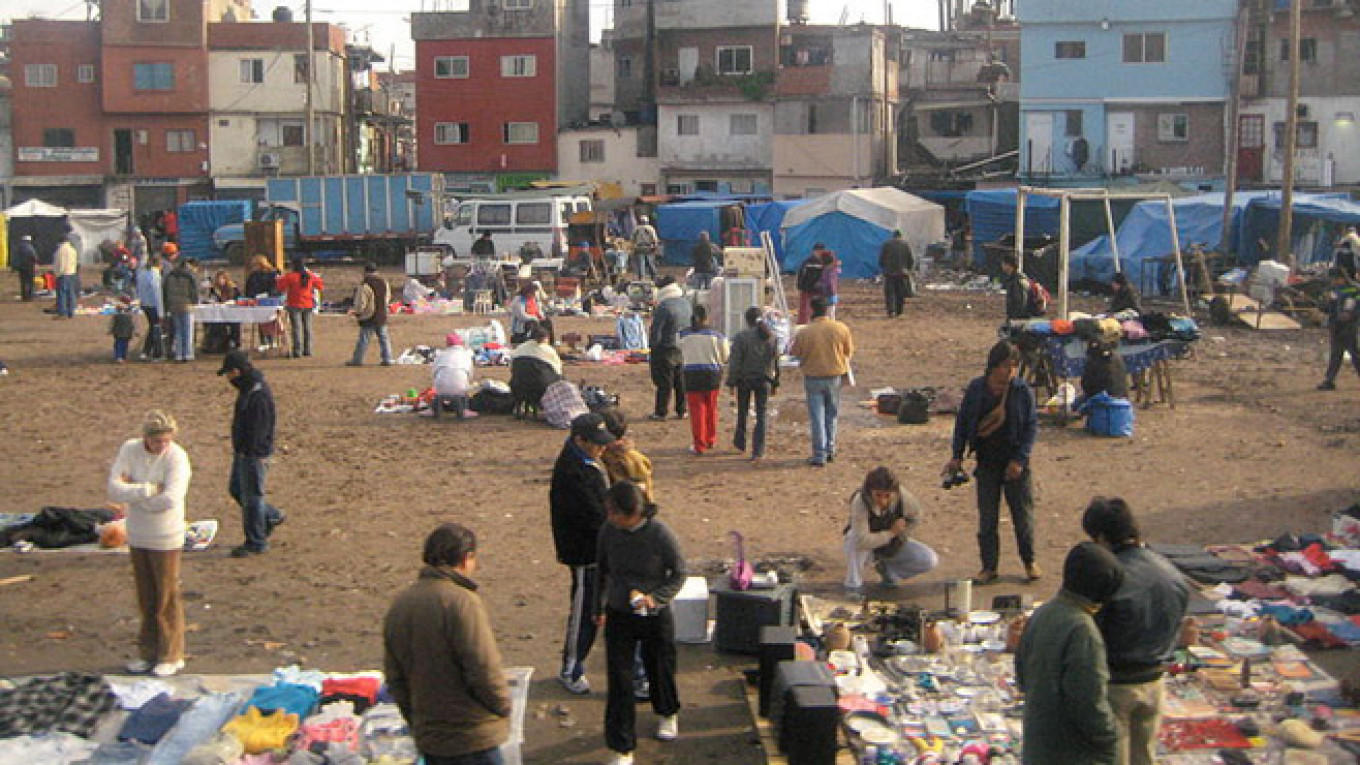In the second half of the 20th century, Argentina experienced a major economic disaster, and yet amazingly, it passed virtually unnoticed by the population. How did that happen?
Gross domestic product is the key indicator of economic development and the standard of living. In 1950, Argentina's GDP was equal to the average GDP of Europe's 12 leading powers and about half of the U.S. GDP. That made Argentina one of the world's developed countries.
However, that picture changed radically by 2000 when Argentina's GDP dropped from 74 percent of Sweden's to just 40 percent, from 154 percent of Italy's to just 44 percent, from being equal to the average GDP of Europe's 12 leading powers to just 41 percent of that average, and to just 29 percent of U.S. GDP. That pushed Argentina down to the status of a developing nation.
How did that go unnoticed? In short, because nothing much changed in the country over those years. Argentineans lived, worked and took part in politics. Argentinean society gave birth to a great body of literature that brought as much glory to the country as 19th-century Russian literature brought fame to this country. The Argentinean football team won the World Cup twice.
Of course, the country had hard times, too. For six years a general ruled Argentina with a "strong arm" and enforced order in both the economy and the country's spiritual life. Waves of discontent swept society, but the country carried on and managed to keep from falling apart. In fact, Argentina never suffered a single major political disaster in all of that time.
Argentina's example shows how difficult it is to explain to Russia's leaders and citizens why this country's economic course is so dangerous. On one hand, Russia's current course is absolutely disastrous. On the other hand, it will not be as bad as the disaster of 1990-91 that led to enormous political upheaval. It will be more of an Argentina-style disaster marked by long years of slow growth punctuated by the occasional boom or recession — just as Argentina experienced in the 50 years prior to 2000 — and that looking back later will seem to be lost decades.
Considering that the Russian economy must grow by at least 2 or 3 percentage points faster than Europe to catch up with the EU, having sanctions applied from foreign powers and imposing more sanctions in retaliation makes it absolutely impossible to achieve stable economic growth, and is therefore a totally unacceptable policy.
From the standpoint of economic development, this approach is no less catastrophic than geopolitical or even territorial losses. The same is true of other elements of Russia's economic policy. This includes "war expenses" that range from government investment in weapons development to mobilization plans for industrial enterprises: all are incompatible with sustainable economic growth.
What should economists do to attract attention to this problem? If only we could come up with an economics version of the bogeymen that Kremlin spin doctors have dreamed up to scare each other and innocent television viewers.
So far state media has propagated horrors such as "NATO is at our doorstep," "Jewish Banderites are on the rampage," "Ukrainian forces are crucifying babies," "a junta rules in Kiev," and so on.
Perhaps these would work for economists: "The exchange rate will hit 100 rubles to the dollar," "Russia will turn into another North Korea and we will all have to live on grass," and "Russian children will be sold into slavery to Livonian barons."
And hey, if it works for the Kremlin, it might just work for economists, too.
Konstantin Sonin, a columnist for Vedomosti, is professor of economics and vice rector at the Higher School of Economics in Moscow.
A Message from The Moscow Times:
Dear readers,
We are facing unprecedented challenges. Russia's Prosecutor General's Office has designated The Moscow Times as an "undesirable" organization, criminalizing our work and putting our staff at risk of prosecution. This follows our earlier unjust labeling as a "foreign agent."
These actions are direct attempts to silence independent journalism in Russia. The authorities claim our work "discredits the decisions of the Russian leadership." We see things differently: we strive to provide accurate, unbiased reporting on Russia.
We, the journalists of The Moscow Times, refuse to be silenced. But to continue our work, we need your help.
Your support, no matter how small, makes a world of difference. If you can, please support us monthly starting from just $2. It's quick to set up, and every contribution makes a significant impact.
By supporting The Moscow Times, you're defending open, independent journalism in the face of repression. Thank you for standing with us.
Remind me later.






